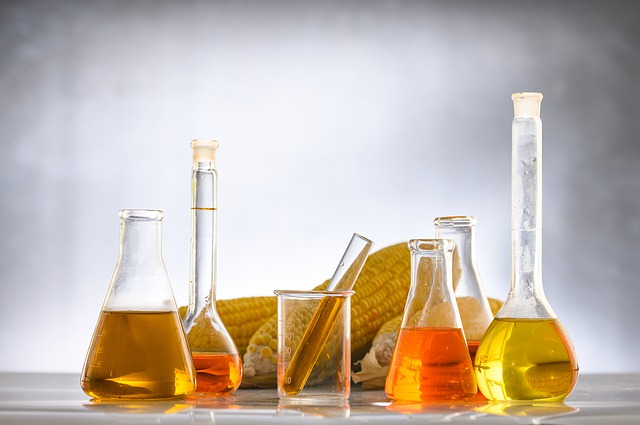A new copper-based material might help chemists recycle an unwanted greenhouse gas into a desirable green fuel.
As a greenhouse gas, carbon dioxide — or CO2 — helps warm the atmosphere. But too much of that gas has lately been driving an atmospheric fever. Wouldn’t it be great if that CO2 pollution could instead by turned into a useful product? One team of researchers thinks it’s found a way to do just that. They are turning CO2 into ethanol. It’s the octane-boosting chemical added to most stocks of U.S. gasoline.
Adding ethanol reduces the energy in a gallon of gasoline. But it offers a nice tradeoff: It helps that gasoline now burn more cleanly. So making ethanol from CO2 would be better for the environment
To do that, the researchers first needed to break CO2 into its building blocks. It turns out that this is a tough task. In such circumstances, chemists often turn to a catalyst [CAT-uh-list]. Such materials speed up a chemical reaction.
Here, the group developed a brand-new catalyst, notes Di-Jia Liu. A chemist at Argonne National Laboratory, in Lemont, Ill., he headed the team that developed this catalyst. With it, the voltage needed to start the new CO2-to-ethanol reaction is far less than what’s needed to kickstart similar reactions, Liu says. And although chemical reactions often make many unwanted byproducts, this new one does not. More than 90 percent of the final product is ethanol, he reports.
Liu and his team described their work July 27 in Nature Energy.
Source: Sciencenews
